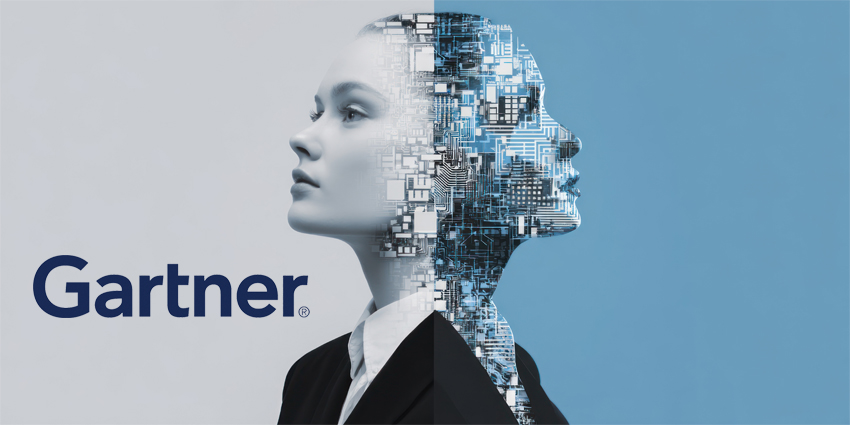A Gartner study has seemingly rebuked the widespread belief that AI will replace human agents in the customer service space.
The report predicts that by 2027, 50 percent of businesses planning major customer service job cuts due to AI will reverse course.
As part of the research, Gartner polled 163 customer service and support leaders, with 95 percent of respondents confirming that they intended to retain human agents in order to “strategically define AI’s role.”
Gartner believes that the change of heart is due to many businesses underestimating the complexities and challenges of transitioning to an AI-powered, agentless customer service and experience model.
Instead, the research powerhouse expects more companies to operate a “digital first, but not digital only” strategy.
This approach was championed by Kathy Ross, Senior Director Analyst at the Gartner Customer Service and Support Practice, who argued that “while AI offers significant potential to transform customer service, it is not a panacea.
The human touch remains irreplaceable in many interactions, and organizations must balance technology with human empathy and understanding.
“A hybrid approach, where AI and human agents work in tandem, is the most effective strategy for delivering exceptional customer experiences.”
Gartner has been a long-term advocate of this stance, with Emily Potosky, Senior Director of Research at the Gartner Customer Service and Support Practice, making similar remarks during a Q&A in April of last year.
Potosky advised against relying solely on self-service and automation aimed at replacing human staff.
Instead, she encouraged businesses to invest in employee enablement technology, which is designed to support and enhance employee performance, boosting both efficiency and effectiveness.
Gartner’s latest research certainly seems to suggest that more businesses plan to embrace the hybrid model of humans and AI working together, but other findings offer a less optimistic outlook for agents.
Are Human Agents Really Safe from the Threat of AI?
There is no denying that for the immediate future, Gartner’s latest prediction is good news for humans working in the customer service and experience space.
However, when you dig a little deeper, there are definitely still reasons to be concerned.
First and foremost, the main figures from the most recent study can be misleading.
While a 50 percent reduction is sizable, it does still mean that half of businesses that were looking to reduce their headcount due to AI are still planning to do so.
Even the poll showing that 95 percent of customer service leaders intend to retain their human agents might not be as reassuring as it sounds, as the caveat is that these humans are being kept on in order to “strategically define AI’s role.”
Which begs the question, what happens when these businesses do decide on their AI strategies? Do their human employees then become surplus to requirements?
Moreover, these misgivings around the security of human agents’ roles are supported by another Gartner report, which predicts that by 2029, agentic AI will independently handle 80 percent of routine customer service inquiries.
Undoubtedly, the argument here will be that this still allows human agents to handle more complicated queries. Yet, it is hard to envisage a world where this level of automation does not lead to job losses.
It also raises questions about burnout for those agents that do remain in their roles.
Human agents having to handle fewer basic requests is almost always represented as a positive, but the tradeoff is they’re increasingly left to deal with only the most complex cases – without the simpler tasks that offer brief mental breaks.
In a recent discussion with CX Today about the rise of agent burnout, Ed Creasey, VP of Solution Engineering at Calabrio, opined on his own experience of working in contact centers.
“I used to love a change of address because it was like a little break,” he explained.
All this AI, all this progression, surely life should be getting easier for the contact center?
“But more complicated problems are coming into environments that are already really complicated.”
It is clear from Gartner’s latest research that businesses are realizing that their vision of an agentless customer service department is more complicated and further away from achieving than they anticipated.
While this offers a short-term reprieve for human workers, as AI advances and becomes more sophisticated, the vision becomes more achievable, and agents’ positions become less secure.







